Every single writer wants to have their article read by lots of readers. Here’s a guide from an award-winning campus journalist on how to make your next ScieTech article go viral.
Science and Technology is full of direct quotations, facts and technical terms from trusted experts with experience, degree and diploma.
A vital and ethical type of writing that boosts the knowledge of the readers.
Table of Contents

Knowledge about Science updates
A Science and Technology Writer must attain knowledge and news about the current events on Science, Technology, Health and Environment because most of the time it is the topic when the Press Conference comes. Common knowledge about diseases, medicines, epidemics and evolution of Artificial Intelligence or what we call AI greatly helps and shapes us as a SciTech Writer.
Knowledge of science, technology, environment, and health is essential for effective SciTech writing because it ensures accuracy, context, and clarity.
A brief understanding of these areas allows writers to present reliable information and connect complex topics to current society issues, making them more relevant and engaging for readers.
This expertise do helps out critical thinking and enables writers to analyze different perspectives, promoting informed discourse.
Moreover, it empowers writers to advocate everyone for important causes and communicate effectively with diverse audiences, ultimately contributing to a well-informed public.
In an era of rapid advancements and complex challenges, such knowledge is crucial for impactful SciTech communication.
Responsible writing, factual and reliable | ScieTech article go viral
SciTech writing consists of facts only and it is required to be reliable, trusted and quotes from experts specifically from the interviews.
It is also required that it must have evidence that proves something about a certain topic. Caution is essential in SciTech writing for several reasons.
First, the potential impact of misinformation can be significant especially nowadays where technology is quick particularly in areas like health and environmental science, where inaccurate data can lead to public harm or misunderstanding.
Second, complex topics often involve nuanced perspectives; failing to acknowledge this complexity can result in oversimplification or biased representations.
Third, the rapid pace of technological advancements means that information can quickly become outdated, making it crucial for writers to verify facts and stay current.
Additionally, ethical considerations, such as transparency and being concise about sources and conflicts of interest, are vital for maintaining credibility, reliability and being trustworthy.
Overall, careful and responsible writing helps ensure that the information shared is reliable, balanced, and conducive to informed public discourse.
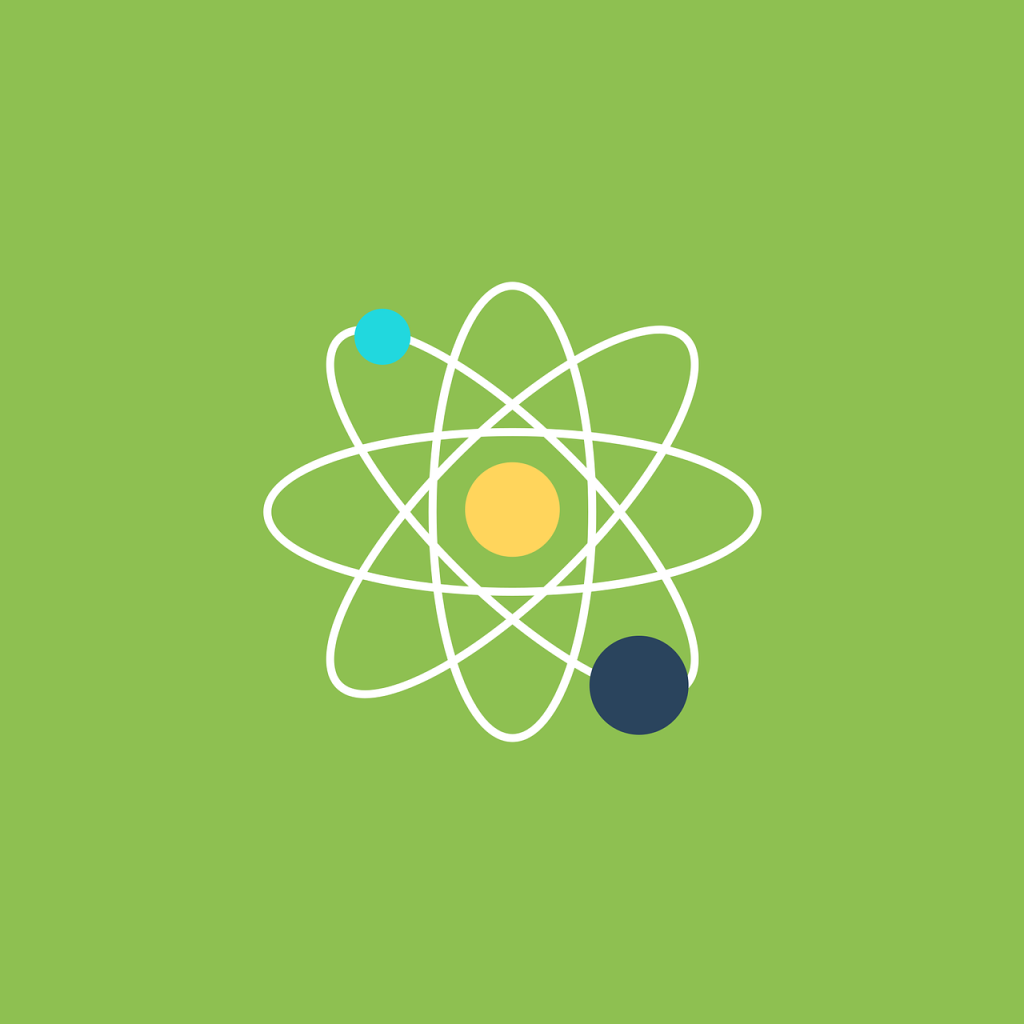
No mistake
You need to be cautious on what you are writing/inputting to your article because a mistake or misinformation can lead to a failed article.
A science article is an ethical article.
Full of facts, methodologies, jargons but can also be explained by a simple person.
Determine the audience
Determine the age of your reader/target audience, not everyone can understand some scientific terms so that you also need to explain some technical terms that will be very difficult to understand for some readers.
You can also minimize some unfamiliar terms that will make them confused.
Specify every term that even a kid can understand what the word is all about.
Gathering of information
It will be also very helpful if you take notes while watching some news about science that will enhance your vocabulary about science including diseases, scientific name of plants, animals also medicines.
Be organized, always put subheadings if necessary so that you can explain briefly every words and topics that you want to explain throughout your article.
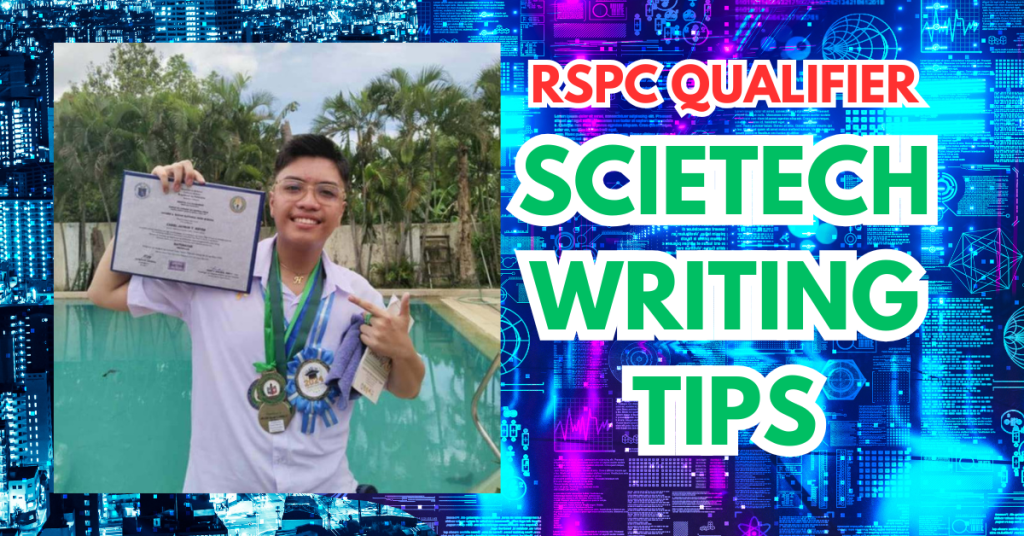
Simple and concise
Do not use unnecessary words if you can because it can lead your reader to confusion and do not be too scientific on your article hence make it simple and concise because some reader cannot understand what you are saying.
Ethical writing
Be ethical when you are writing, make sure every information is transparent to your sources that will make conflicts from your article to the reader.
Be a voracious reader
”Read, read and read”, from my experience, our judge tells us to always read articles about science and technology so that we can stay updated to the news around us.
A SciTech Writer is an updated reader, always be attentive to your surroundings and always understand what science is all about.
Science is magical, so is its creator, which is you.

About the Author
Cahrl Jayson Reyes is a 7-year feature writer who has passion to inspire co-journalists. Currently a feature writer and a publisher of a school publication. [Among Charl’s accolades as of writing is him becoming a Regional Schools Press Conference (RSPC Qualifier in ScieTech Writing, and Division Schools Press Conference (DSPC) qualifier in Feature Writing.]
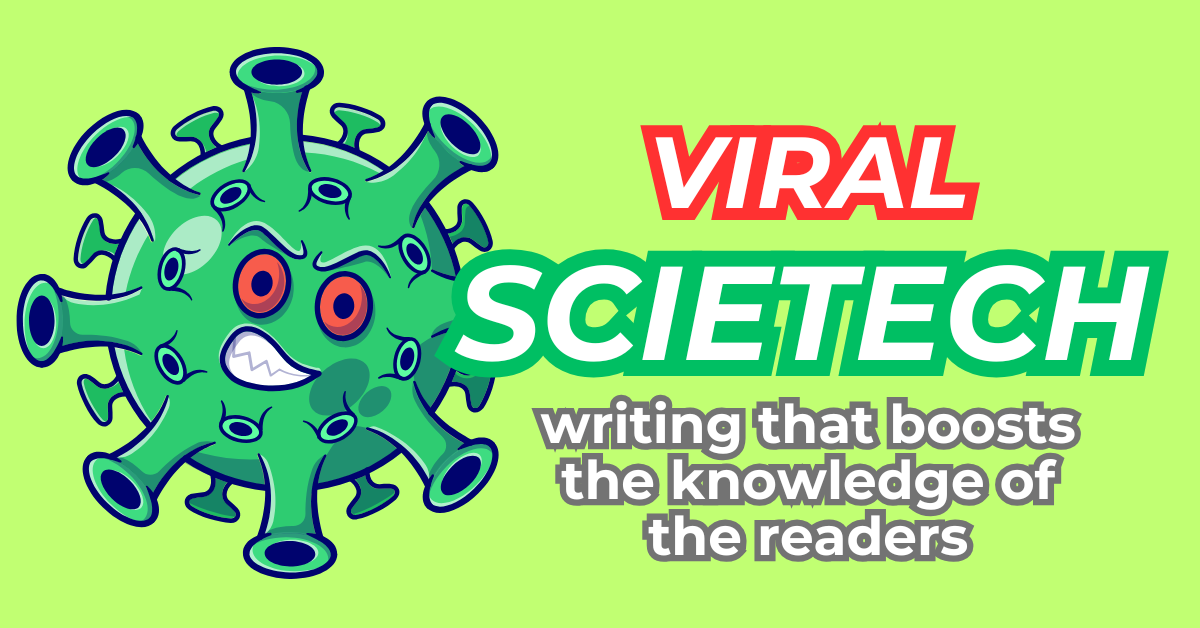
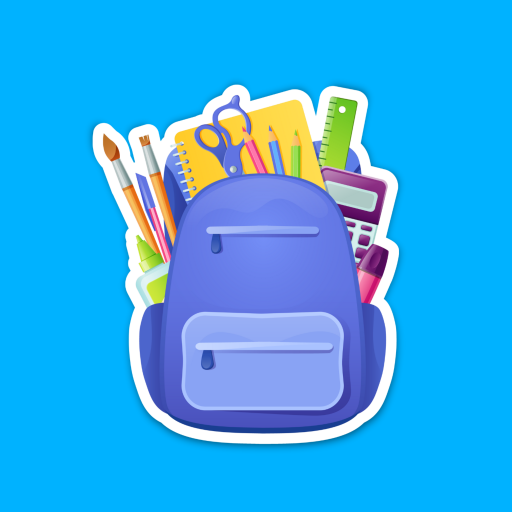


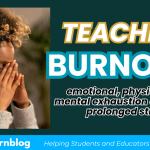
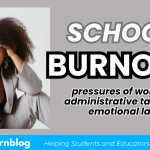
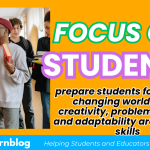
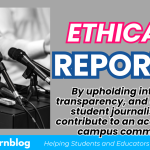



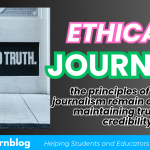
Thank you for this info Mr. RSPC. I will be competing for RSPC this December 2024.